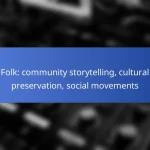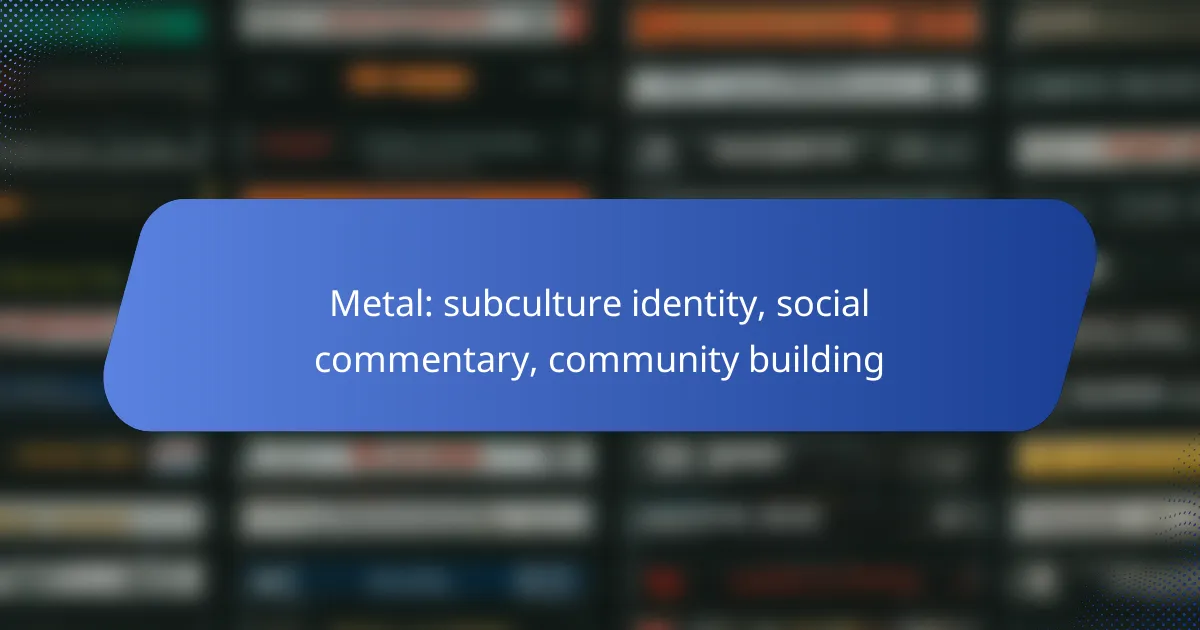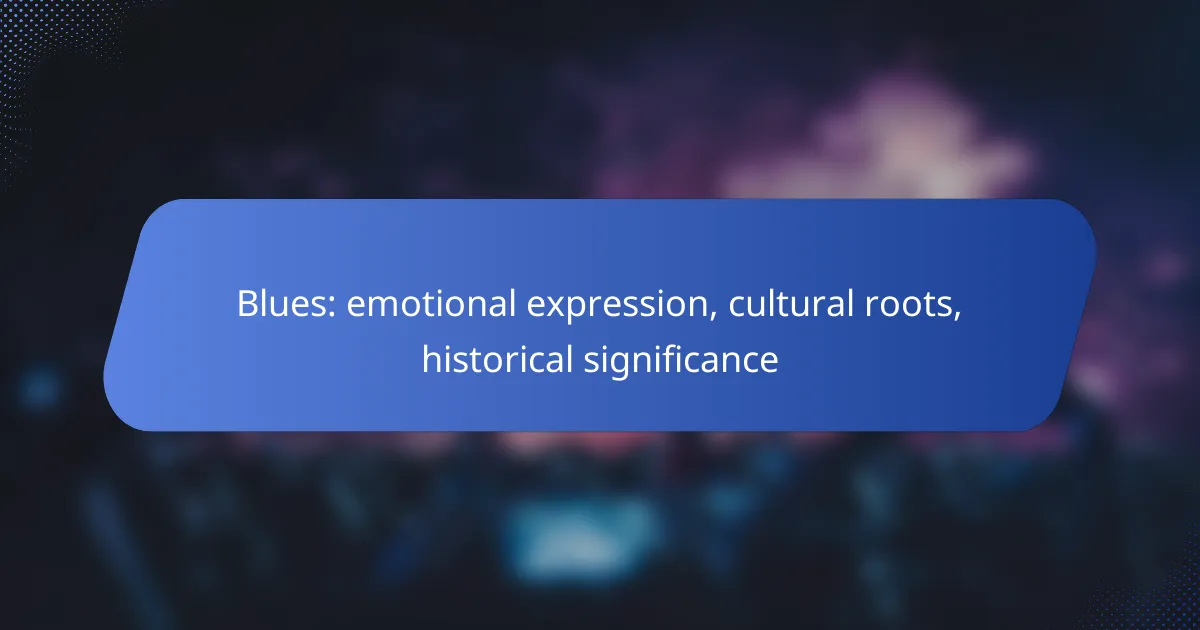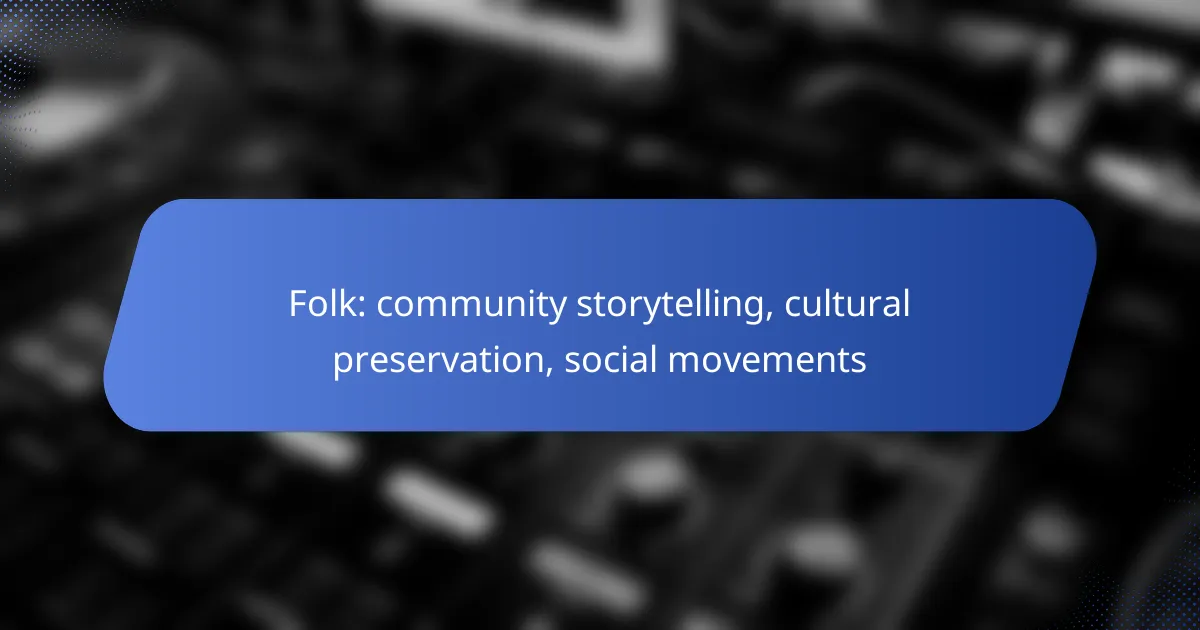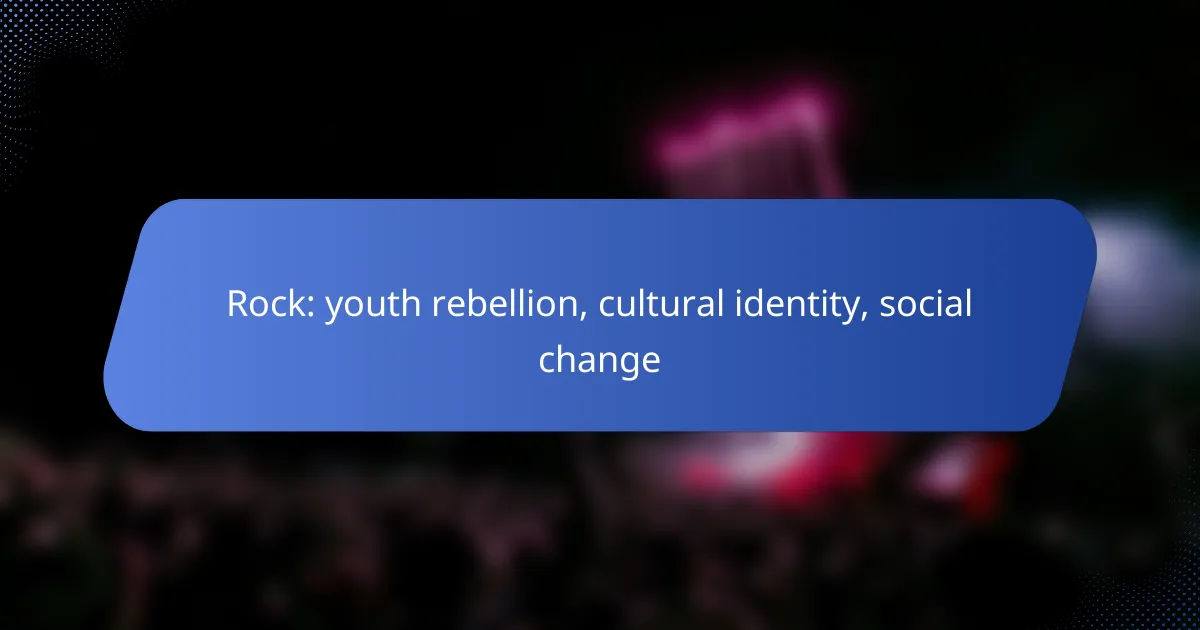Metal music plays a crucial role in shaping subculture identity, particularly in Australia, by creating a strong sense of belonging among its fans. It serves not only as a platform for self-expression but also as a vehicle for social commentary, addressing pressing societal issues through powerful lyrics. Additionally, the metal community fosters connections and collaboration, uniting individuals with shared values and experiences in a vibrant social network.
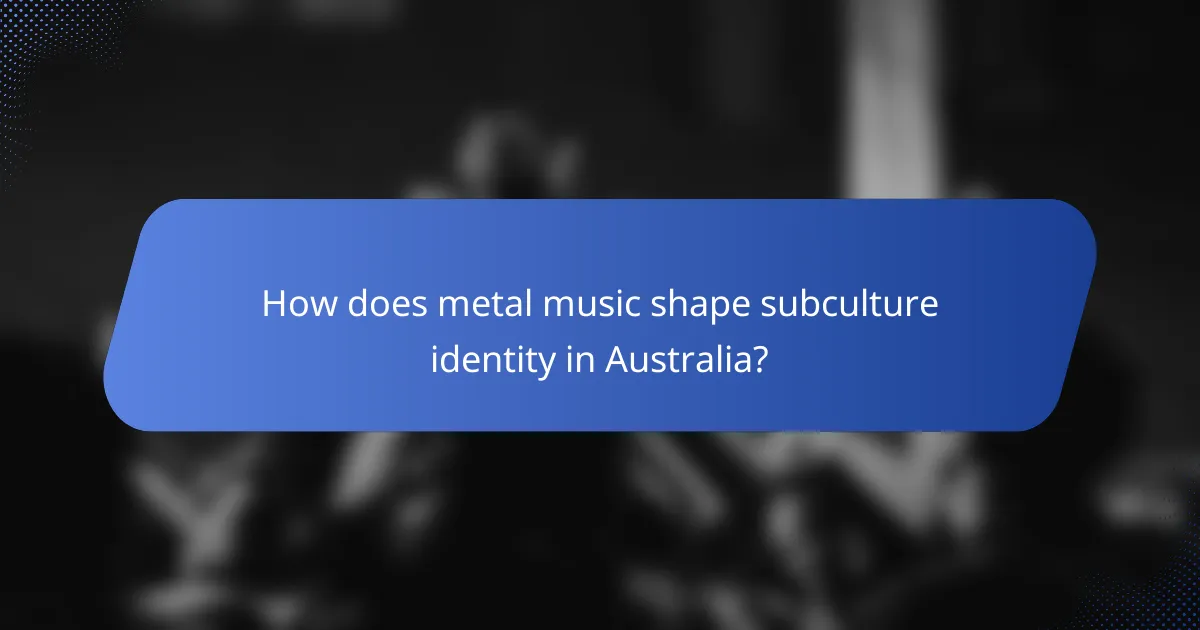
How does metal music shape subculture identity in Australia?
Metal music significantly influences subculture identity in Australia by fostering a sense of belonging among fans and promoting shared values. This genre serves as a platform for self-expression, allowing individuals to connect through music, fashion, and communal experiences.
Influence of metal on youth culture
Metal music plays a crucial role in shaping youth culture in Australia by providing an outlet for rebellion and individuality. Many young fans resonate with the themes of defiance and authenticity found in metal lyrics, which often reflect personal struggles and societal issues.
Events like music festivals and local gigs create spaces where young people can gather, forming tight-knit communities. These gatherings not only celebrate the music but also reinforce a collective identity among fans, fostering friendships and support networks.
Symbolism in metal fashion
Fashion within the metal subculture serves as a powerful symbol of identity and resistance. Common elements include band t-shirts, leather jackets, and distinctive accessories like spikes and chains, which signal affiliation and commitment to the genre.
These fashion choices often reflect personal stories and values, allowing individuals to express their beliefs and connect with others who share similar tastes. The visual aspects of metal fashion can also challenge mainstream norms, promoting a sense of empowerment among fans.
Regional variations in metal subcultures
Australia’s metal scene exhibits regional variations that reflect local culture and influences. For instance, cities like Melbourne and Sydney have vibrant metal communities with diverse subgenres, while smaller towns may focus on specific styles or local bands.
These regional differences can affect everything from the types of venues available to the specific themes explored in local music. Understanding these variations helps fans appreciate the broader landscape of metal in Australia and fosters connections across different communities.
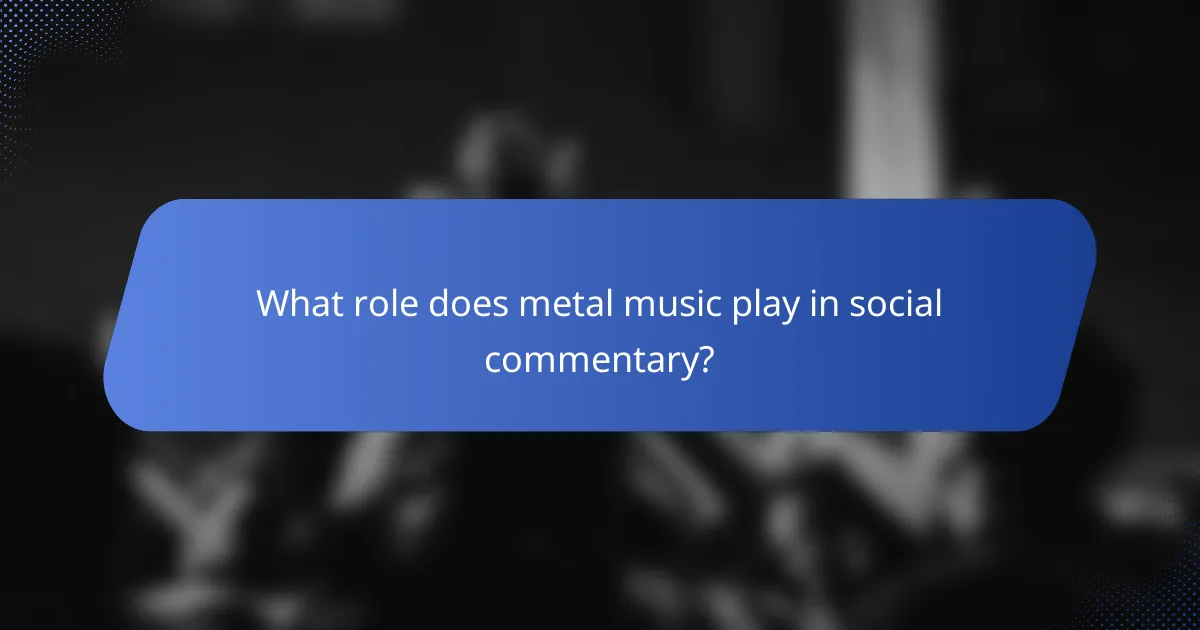
What role does metal music play in social commentary?
Metal music serves as a powerful medium for social commentary, often addressing societal issues and injustices through its lyrics and themes. It reflects the frustrations and experiences of individuals and communities, providing a platform for voices that might otherwise go unheard.
Lyrics addressing social issues
Many metal songs tackle pressing social issues such as war, inequality, and corruption. Bands like Metallica and Slayer have penned lyrics that critique government actions and societal norms, resonating with listeners who share similar frustrations. This lyrical content not only entertains but also sparks conversations about important topics.
For example, songs like “One” by Metallica highlight the horrors of war, while “Angel of Death” by Slayer addresses the atrocities of the Holocaust. These powerful narratives encourage listeners to reflect on the darker aspects of humanity and society.
Metal as a voice for marginalized communities
Metal music has become a significant outlet for marginalized communities, offering a sense of belonging and empowerment. Genres like black metal and death metal often originate from cultures that face oppression, allowing artists to express their struggles and resilience through their music.
For instance, bands from various backgrounds, including indigenous and [censured] musicians, use metal to challenge stereotypes and advocate for their rights. This inclusivity fosters a supportive community where individuals can connect over shared experiences and find solidarity in their struggles.

How does metal foster community building?
Metal fosters community building by creating a shared identity among fans, providing spaces for social interaction, and promoting collaboration through music and events. This subculture encourages connections among individuals who share similar values, interests, and experiences, forming a strong sense of belonging.
Local metal scenes in Australian cities
Australian cities like Melbourne, Sydney, and Brisbane have vibrant local metal scenes that serve as crucial gathering points for fans. These scenes often feature a mix of established and emerging bands, allowing local talent to showcase their music while fostering community engagement. Venues such as pubs and clubs regularly host live performances, creating opportunities for fans to connect and support one another.
In addition to live music, local scenes often organize events like jam sessions and workshops, where musicians can collaborate and learn from each other. This not only strengthens the community but also helps to cultivate the next generation of metal artists.
Metal festivals as community hubs
Metal festivals are significant community hubs that bring together fans from various backgrounds to celebrate their shared passion for the genre. Events like Download Festival Australia and Heavy Fest attract thousands of attendees, creating an immersive environment where fans can bond over their love for metal music. These festivals often feature diverse lineups, showcasing both international headliners and local acts.
Beyond music, festivals provide spaces for fans to engage in discussions, share experiences, and participate in activities such as meet-and-greets with bands. This sense of camaraderie reinforces the community aspect of metal culture, making festivals essential for building lasting connections among fans.
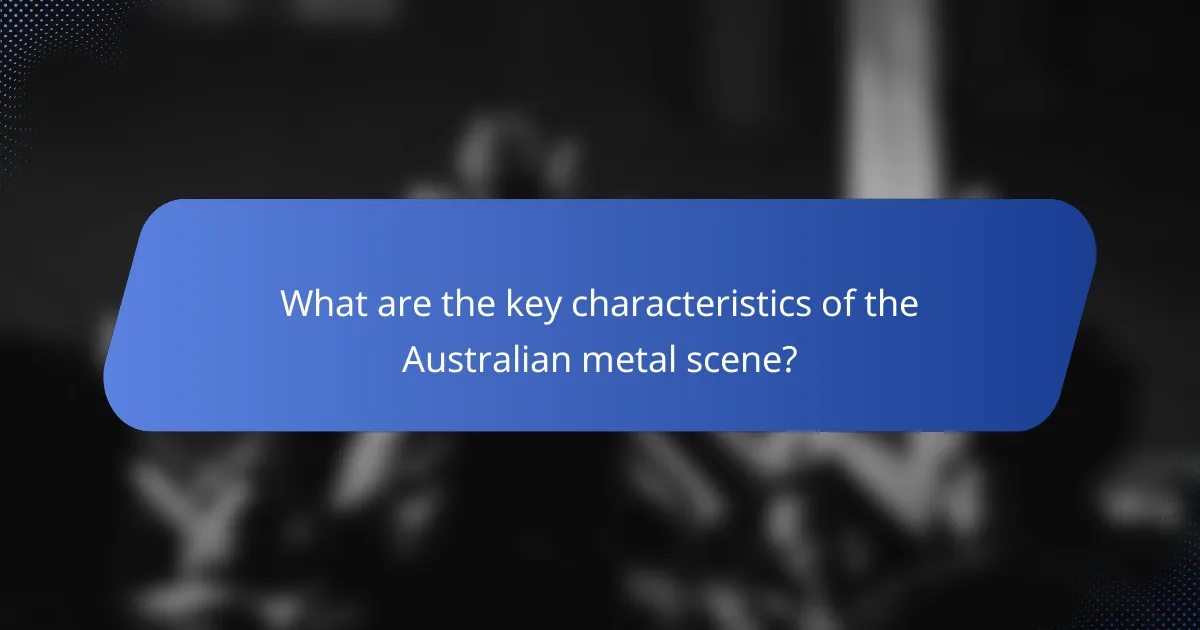
What are the key characteristics of the Australian metal scene?
The Australian metal scene is known for its diversity, strong community ties, and a blend of various subgenres. It features a mix of local influences and global trends, creating a unique sound and identity that resonates with fans both domestically and internationally.
Notable Australian metal bands
Several bands have significantly shaped the Australian metal scene, including AC/DC, Parkway Drive, and Thy Art Is Murder. These groups have not only achieved commercial success but also garnered critical acclaim, contributing to the global metal landscape.
Emerging bands like Northlane and In Hearts Wake are also making waves, showcasing the evolving nature of the scene. Their innovative approaches and incorporation of various musical styles highlight the richness of Australian metal.
Influence of Australian culture on metal
Australian culture deeply influences its metal scene, with themes of identity, landscape, and social issues often reflected in the music. The vast and rugged Australian environment inspires lyrical content and musical style, creating a distinct sound that sets it apart from other regions.
Moreover, the history of social and political challenges in Australia, such as indigenous rights and environmental concerns, often finds its way into the lyrics and messages of local bands. This connection to cultural narratives fosters a strong sense of community among fans and musicians alike.
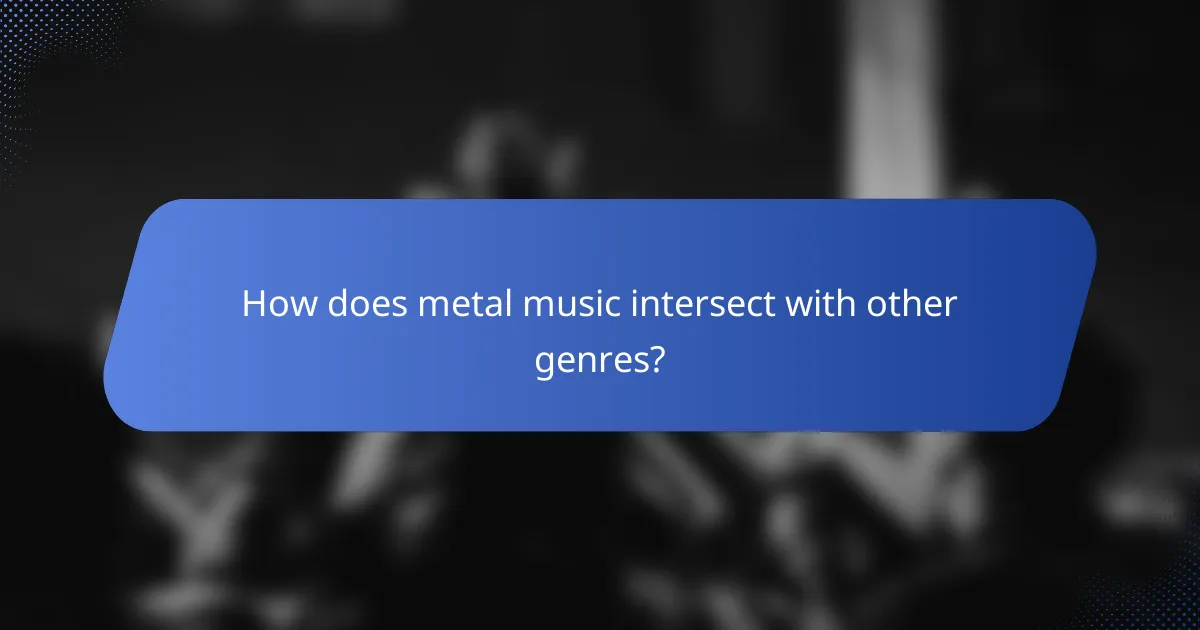
How does metal music intersect with other genres?
Metal music intersects with various genres by blending elements, styles, and influences, creating unique sounds and communities. This fusion often leads to collaborations that enrich both metal and the other genres involved, enhancing the overall musical landscape.
Metal and punk collaborations
Metal and punk have a long history of collaboration, sharing a rebellious spirit and a DIY ethos. Bands like Metallica and the Misfits have successfully merged heavy riffs with punk’s raw energy, appealing to fans of both genres. This crossover often results in high-energy performances that resonate with audiences seeking authenticity and intensity.
Collaborations can take many forms, from joint tours to split albums, allowing artists to explore new creative avenues. For instance, the fusion of thrash metal and hardcore punk has birthed subgenres like crossover thrash, exemplified by bands such as D.R.I. and Suicidal Tendencies.
Fusion genres in the Australian music landscape
Australia’s music scene showcases a rich variety of fusion genres that blend metal with local styles, such as punk, rock, and even indigenous music. Bands like Parkway Drive incorporate elements of metalcore and melodic hardcore, reflecting the diverse influences present in the Australian landscape. This blending creates a unique sound that resonates with both local and international audiences.
Additionally, the Australian music community often embraces genre-bending collaborations, leading to innovative projects that push the boundaries of traditional metal. Festivals like the Big Day Out and Download Festival highlight these fusion genres, providing a platform for emerging artists to showcase their eclectic sounds and build a vibrant community.
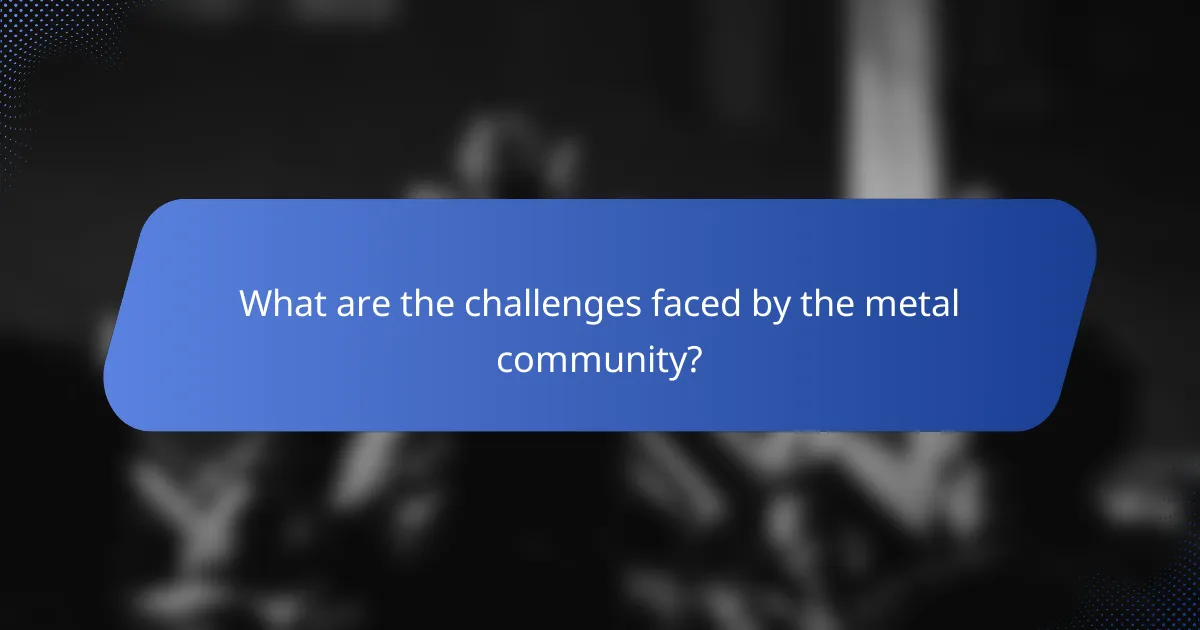
What are the challenges faced by the metal community?
The metal community faces several challenges, including societal stigmatization and limited access to venues and resources. These issues can hinder the growth and acceptance of metal culture, impacting both individual fans and the community as a whole.
Stigmatization of metal culture
Metal culture often encounters negative stereotypes, leading to stigmatization. Many people associate metal with aggression or anti-social behavior, which can alienate fans and discourage new listeners from exploring the genre.
This stigmatization can manifest in various ways, such as discrimination at public events or misunderstandings in social settings. Fans may feel pressured to hide their interests or conform to mainstream tastes to avoid judgment.
Access to venues and resources
Access to live music venues and resources for metal events can be limited, especially in smaller towns or rural areas. Many venues prioritize mainstream genres, making it difficult for metal bands to secure performance opportunities.
Additionally, financial constraints can affect the metal community’s ability to organize events. High costs for venue rentals, equipment, and promotion can deter local organizers from hosting metal shows, further isolating the community.
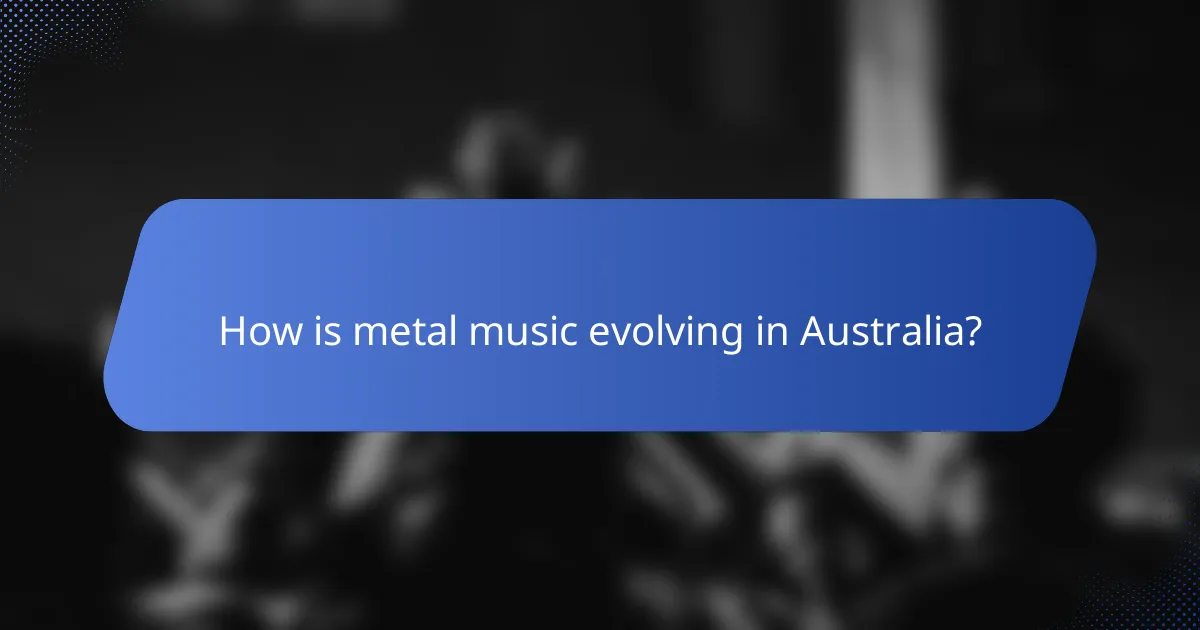
How is metal music evolving in Australia?
Metal music in Australia is experiencing a dynamic evolution, characterized by a blend of traditional styles and innovative subgenres. This transformation reflects broader cultural shifts and the growing diversity within the Australian metal community.
Emergence of New Subgenres
New subgenres are emerging within the Australian metal scene, influenced by global trends and local cultural elements. Styles such as metalcore, deathcore, and djent are gaining traction, often incorporating unique Australian themes and sounds.
Local bands are experimenting with indigenous music elements, creating a fusion that resonates with both metal enthusiasts and broader audiences. This evolution not only diversifies the sound but also strengthens cultural identity within the genre.
Community and Collaboration
The Australian metal community is increasingly focused on collaboration, with bands often joining forces for tours and festivals. This sense of unity fosters a supportive environment where artists can share resources and audiences, enhancing their visibility.
Events like local metal festivals and competitions encourage interaction among musicians and fans, creating a vibrant atmosphere that promotes the genre. These gatherings are crucial for networking and building a strong community identity.
Social Commentary and Activism
Metal music in Australia is also evolving as a platform for social commentary and activism. Many artists are addressing pressing social issues, such as mental health, environmental concerns, and indigenous rights, through their lyrics and public statements.
This trend not only engages listeners but also encourages critical discussions within the community. By using their music as a vehicle for change, Australian metal bands are making a significant impact beyond the music scene.




